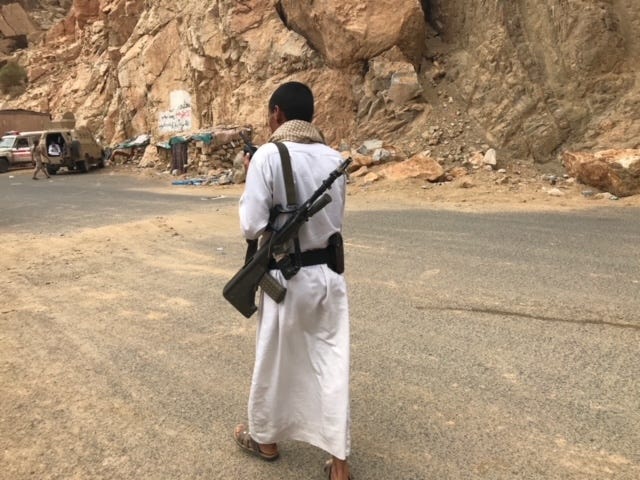What are war crimes? Crimes against humanity? Genocide? Crimes of Aggression? Unwrapping the complexities in easy speak.
“There is a cyclone fence between ourselves and the slaughter and behind it, we hover in a calm protected world like netted fish, exactly like netted fish. It is either the beginning or the end of the world, and the choice is ourselves or nothing.”
― Carolyn Forché, The Country Between Us
Why subscribe?
The world is a beautiful, tragic, nuanced and profoundly complicated place. As a journalist and writer for more than fifteen years, I have worked in countless countries in a bid to understand how wars and conflicts come to be, the players who pull the strings and those who are left to face the consequences and pick up the pieces of their broken lives.
Sadly, the media and political establishment too often do not stop to reflect upon how and why crises come to be and the crimes that have been committed. Narratives are rarely told by those on the ground – the ordinary who have been forced to become extraordinary – but through agendas, government figures and political landscapes. This distance and desensitizing only adds to the glossing of truths and alienates those of us who want to understand what is happening globally and what we can do to help those who need our hand the most.
Moreover, those responsible for mass atrocities are rarely held accountable for what they have done, and survivors still do not see enough justice for what was done to them.
Through “The World of War, Crimes + Crises,” I endeavor to play my small role in bringing all readers with me on a journey to understand the players and motivations behind global unrest, to unravel complex topics in a simple and meaningful way through the art of storytelling and narrative nonfiction, musings, original war and travel photography, and cultural appreciation without any hidden agendas of the need for diplomatic dancing.
I hope for this newsletter to be a community for others to share their stories and perspectives, and not only to shed light on the evil and war transgressions of the past and present – but also to illuminate the angels in the darkness. Those deep in the trenches selflessly supporting survivors, those who get through it all with grit and teach us what it means to be brave.
Someone once told me that people think what happens far away to other people doesn’t impact them. But if it happens there and not enough people are aware and driven to stop it, can’t it happen here too?
You can follow me here on Twitter @holliesmckay and Instagram @holliesmckay
Read some of my select work over the years and media appearances here
And purchase my book “Only Cry for the Living: Memos from Inside the ISIS Battlefield”
Subscribe to get full access to the newsletter and website. Never miss an update.
WHAT ARE WAR CRIMES?
War crimes, at the core, is the notion that an individual can be held accountable for acts committed during a time of conflict in violation of international law. No statute of limitations exists for such crimes, meaning that a person can still be prosecuted and punished regardless of the amount of time passed since the crimes took place.
According to Article 8 of the 1998 Rome Statute of the International Criminal Court (ICC), which established a formal outline of what constitutes a "war crimes," actions that fit in this category are:
i. Willful killing
ii. Torture or inhuman treatment, including biological experiments;
iii. Willfully causing great suffering or serious injury to body or health;
iv. Extensive destruction and appropriation of property, not justified by military necessity and carried out unlawfully and wantonly;
v. Compelling a prisoner of war or other protected person to serve in the forces of a hostile Power;
vi. Willfully depriving a prisoner of war or other protected person of the rights of fair and regular trial;
vii. Unlawful deportation or transfer or unlawful confinement;
viii. Taking of hostages.
Such acts can be executed against both innocent civilians and combatants in the war theater. For the "war crimes" category to be used as part of the prosecution, the violations must have been committed during an armed conflict, and the conduct must have been carried out in pursuit of a combatant's aim or wartime strategy. (I.e., if a homicide takes place during a war but is determined not to be related to the war itself, it is not classified as a war crime).
The act must also be deemed a severe violation of international humanitarian law to constitute a war crime. Such breaches do not enlist State responsibility but herald individual criminal responsibility, as individuals are personally held liable.
Thus individuals can be held culpable for banned deeds including murder, torture, taking hostages, pillage, recruiting child soldiers, and intentionally directing assaults on civilians and civilian infrastructure, including hospitals, historical monuments, religious and educational institutions and places devoted to the sciences and charitable causes.
By contrast, other human rights violations such as Crimes Against Humanity and Genocide involve broader liability by a State or Non-State leadership.
TYPES OF WAR CRIMES
The notion of war crimes remains a murky and often controversially defined component of international life, making the pursuit of justice ever more challenging.
But typically, war crimes are construed under four main umbrellas. This includes CRIMES AGAINST PEACE, which is the planning or initiation of waging war, and WAR CRIMES which – as defined above – encompass the atrocities of the laws or customs of war such as plunder of private property, inhumane treatment and deportation of slave labor of either a combatant or non-combatant in a quest for victory.
CRIMES AGAINST HUMANITY, in legal terms, refers to offenses employed against any civilian population only, before or during a conflict. Such transgressions include murder, extermination, enslavement, deportation, mass systematic rape and sexual enslavement, persecutions based on political, racial or religious grounds, as well as the more arbitrary "other inhumane acts."
The fourth pillar is that of GENOCIDE.
Genocide is termed one of the most astringent crimes against humanity. It refers to the calculated endeavor "to destroy a national, ethnic, racial or religious group." It can involve killing members of the group, causing severe bodily or psychological harm, forcibly transferring children of one group to another, inflicting measures to prevent births within a group, and intentionally imposing conditions to bring about the physical degradation of a group.
The term was conceived in 1943 by Raphael Lemkin, a Jewish-Polish lawyer who combined the Greek word 'genos' (race or tribe) with the Latin word 'cide' (to kill). His relentless efforts led to the adoption of the U.N. Convention on Genocide in 1948, and it was enacted in January 1951.
Genocide is a crime under international law, irrespective of whether it is classified as illegal in the country where it occurs. "Incitement to commit genocide" is also an international crime.
HISTORY OF WAR CRIMES
Although the sentiment of war crimes is a modern fixture of international law, it is considered to be as old as time and a lingering stain on wars dating back to the antiquity of Greek and Roman times. Before the Second World War, such infractions were conjectured as inevitable aspects of the nature of the conflict.
Commanders, government leaders and soldiers generally evaded retribution for any planning or illicit acts, but justice was metered out only on the losing side, with individuals sometimes executed on imprisoned. The "winners" of the war were rarely punished.
However, the connotation of war crimes was officially cemented in the four Geneva Conventions in 1949 in the painful aftermath of the Second World War. This war induced a shift in attitudes given the sweeping murder of millions of mostly Jewish people by Nazi Germany and the maltreatment of both prisoners of war and civilians by the Japanese, prompting allied powers to take formal action in crafting international humanitarian law.
The four Geneva Conventions, as well as the two 1977 Additional Protocols, were concentrated on the "protection of persons not or no longer taking part in the hostilities." While war crimes are detailed in an array of treaties and documents on international humanitarian law, the issue is complicated by the notion that there is no single document that specifically codifies all war crimes.
PROSECUTING WAR CRIMES
Nonetheless, the concept that a person was adhering to superior orders does not exclude one from being held answerable in the eyes of international law. As per the Geneva conventions, War Crimes should be prosecuted in countries other than where the alleged acts occurred. This is supposed to ensure a fair playing field away from the internal dynamics. Despite this, many such misdeeds still go unpunished.
The first major efforts to herald prosecutions were in the Nurnberg and Tokyo trials, which sought to hold individuals within the German and Japanese governments responsible. However, almost five decades languished before another war crimes trial took place. In May 1993, the U.N. Security Council established the International Criminal Tribunal for the Prosecution of Persons Responsible for Serious Violations of International Humanitarian Law Committed in the Territory of the Former Yugoslavia in an effort to deter further actions of "ethnic cleansing."
In November 1994, the U.N. created the ICTR, formally known as the International Criminal Tribunal for the Prosecution of Persons Responsible for Genocide and Other Serious Violations of International Humanitarian Law Committed in the Territory of Rwanda, to probe further individuals alleged to have orchestrated a genocide.
INSIDE THE UNITED STATES
The matter of war crimes – past and present – is also taken seriously in the context of U.S. laws. As per federal mandates, "whoever, whether inside or outside the United States, commits a war crime, in any of the circumstances described in subsection (b), shall be fined under this title or imprisoned for life or any term of years, or both, and if death results to the victim, shall also be subject to the penalty of death."
The U.S. government defines war crimes under the sub-categories of torture, inhuman treatment, performing biological experiments, murder, mutilation or maiming, intentionally causing serious bodily injury, rape, sexual assault or abuse and taking hostages.
WHY IT MATTERS
So what does this all matter? War crimes – from genocide, crimes against humanity, and religion-based persecution to sexual violence, money laundering, and funding of non-state and state-sanctioned crimes – should be of acute concern to the international community. These unpunished crimes unsettle communities and undermine safety and security, often leading to deep psychological scarring and further unrest even decades after they occur.
We all have something of an obligation to stand up for the most brutalized, persecuted, and victimized in society; we must not let evil go unpunished or turn our backs and say that we did not know. We must always seek prevention when we can and accountability when crimes are committed. We must be just before we are generous and fight for justice before we can fight for peace.
Impunity should not be an option.
For the sake of accountability, justice, and international security, it is pivotal to draw upon and investigate the crimes of decades past, the violations reigning right now as we speak, and to shape and predict the problem places of the future. Prevention can and should always be the responsibility of the free world and of those of us who care to leave our land in a better place than we left it.















Share this post